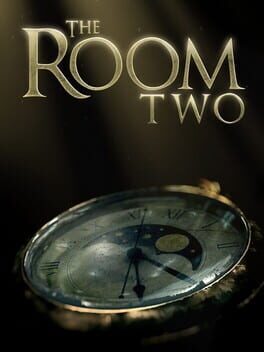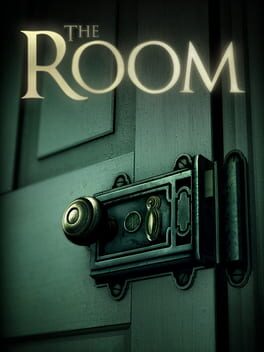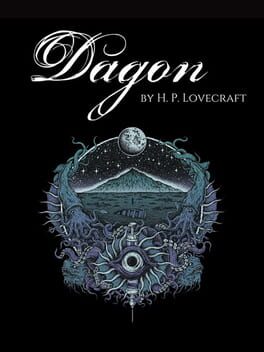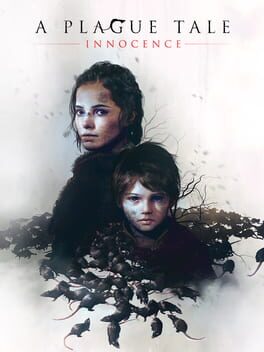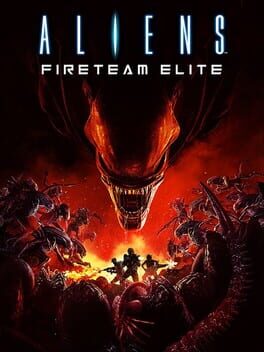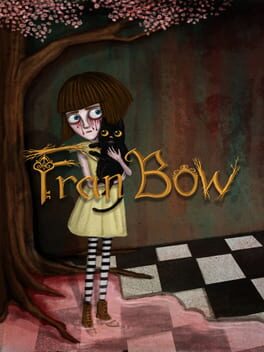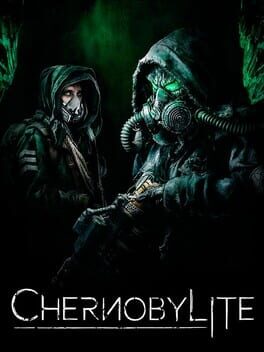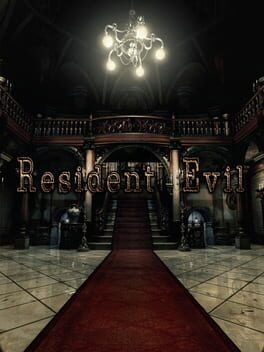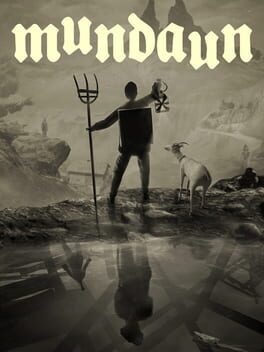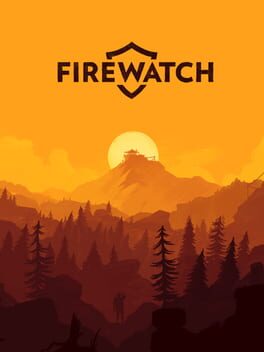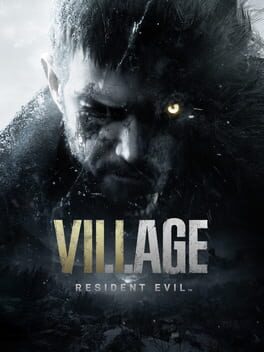ResidentRed
2013
The Room Two was bigger in scope than the first, with environments to progress through rather than a single stationary object. The puzzles themselves remained the same with having to inspect every nook and cranny, and it was no less satisfying when manipulating switches, levers, etc. The use of an eyepiece returned, which revealed hidden objects and brought deeper intricacies to the puzzles. There was a story but it was difficult to try and piece together. Regardless, I still liked the cosmic themes and the somewhat creepy atmosphere.
There’s a reason the series is regarded as highly as it is—puzzle lovers will find some form of enjoyment.
There’s a reason the series is regarded as highly as it is—puzzle lovers will find some form of enjoyment.
2021
I went into Alan Wake Remastered as a new player and my final verdict likely reflects that since I lacked the nostalgia to overlook the frustrations. If I had to describe the gameplay, I’d say it was awkward, and while the environments looked good, the monotony dragged in some parts. Most notable was the terrible sprint, which didn’t feel good to use despite the game expecting the player to avoid combat where possible so as to not be overwhelmed.
I didn’t dislike everything about it—I found the atmosphere and a few other aspects genuinely fantastic—but I wasn’t converted into a diehard Alan Wake fan. If anything, I’d label it overrated but that’s just little old me.
I didn’t dislike everything about it—I found the atmosphere and a few other aspects genuinely fantastic—but I wasn’t converted into a diehard Alan Wake fan. If anything, I’d label it overrated but that’s just little old me.
2020
Like most, Astro’s Playroom was the first game I played on PS5 as it came pre-installed. Even though it was technically a tech demo for the DualSense controller, it held up as a fun platformer that kept me entertained. It had themed levels, collectibles, and even the history of PlayStation itself.
All the various tricks of the controller were cool to experience as well; swipe along the touchpad to control a ball, or blow into the mic to propel certain platforms. Most of the controller capabilities demonstrated haven’t actually been used in other games, though, which makes this one unique.
All the various tricks of the controller were cool to experience as well; swipe along the touchpad to control a ball, or blow into the mic to propel certain platforms. Most of the controller capabilities demonstrated haven’t actually been used in other games, though, which makes this one unique.
2012
Regarded as one of the best puzzle games, The Room began with a mysterious box. Tools and clues were provided to unlock its secrets, compartments revealing more and more mechanisms. The most notable instrument was the lens, which uncovered images otherwise invisible.
I really enjoyed it, especially the satisfaction that came from searching for clues that then led to successfully working out what to do next. Everything was intricate, the various bits and pieces of the box fun to manipulate with a mouse. Lastly, while the story may have been subtle, it had potential with its cosmic themes.
I really enjoyed it, especially the satisfaction that came from searching for clues that then led to successfully working out what to do next. Everything was intricate, the various bits and pieces of the box fun to manipulate with a mouse. Lastly, while the story may have been subtle, it had potential with its cosmic themes.
2021
Not a typical game per se, but rather Dagon was a visual retelling of Lovecraft's classic short story of the same name. There’s no denying that Lovecraft has had a monumental impact on media today—you can find inspiration from his work literally everywhere— so allowing people to experience his stories in different forms is a respectable undertaking.
For a free product this adaptation was excellent, complete with quality voice acting. All that was required was to point and click through the story, so it was low effort while still being entertaining. I was also somewhat educational with facts about the author himself, as well as his other works.
For a free product this adaptation was excellent, complete with quality voice acting. All that was required was to point and click through the story, so it was low effort while still being entertaining. I was also somewhat educational with facts about the author himself, as well as his other works.
A Plague Tale: Innocence introduced a grim yet cinematic setting and an emotional story with two siblings at the forefront. There were no alternate paths or choices, instead it embraced being linear in the tried and true fashion. The stealth, of which there was a lot of, was at times challenging, but satisfying once figured out. The mechanics involving the swarms of rats were definitely the highlight—avoiding them or using them as a weapon, it felt unique.
That said, I don't think I'll ever want to play it again and I can't exactly say why. Maybe it’s because of how tense I was throughout the playthrough, where little mistakes were unforgiving and frustrating.
That said, I don't think I'll ever want to play it again and I can't exactly say why. Maybe it’s because of how tense I was throughout the playthrough, where little mistakes were unforgiving and frustrating.
2021
Biomutant had its moments of humour and weirdness, as well as a nice artistic style with a bright and beautiful world to explore, including different biomes. The mounts, of which could be purchased or tamed, felt good to traverse the environment. Combat was also chaotic, with a lot of options, from melee to ranged.
Unfortunately, it suffered a great deal from Open World Syndrome, where most of the locations were copy-pasted, especially the interiors of buildings. It wasn't saved by its cast of characters either, who spewed the same rhetoric over and over, their utter lack of personalities not helped by the use of a narrator. A mixed bag if ever there was one.
Unfortunately, it suffered a great deal from Open World Syndrome, where most of the locations were copy-pasted, especially the interiors of buildings. It wasn't saved by its cast of characters either, who spewed the same rhetoric over and over, their utter lack of personalities not helped by the use of a narrator. A mixed bag if ever there was one.
Aliens: Fireteam Elite didn’t so much focus on the horror of the Alien franchise, but more so the action of it. Set after the beloved trilogy, the story began with responding to a distress call, and it continued from there. It was possible to play it solo, but the game was very much meant to be multiplayer, with swarms of enemies making combat chaotic. The different classes available had their own strengths and weaknesses, and it was satisfying to make a setup that worked well together.
I played it with friends for the entire campaign, and that single playthrough was fine. Getting deeper into it with higher difficulties, bot teammates, etc, there were obvious issues. To put it simply, it was by no means a bad game, but it was nothing special either.
I played it with friends for the entire campaign, and that single playthrough was fine. Getting deeper into it with higher difficulties, bot teammates, etc, there were obvious issues. To put it simply, it was by no means a bad game, but it was nothing special either.
2015
Fran Bow was a point and click adventure that went off the rails. It had a wonderful childlike artstyle that was sweet and horrific all at once, and dealt with heavy topics like mental illness and abortion, as well as psychological and physical abuse. Talk about morbid.
I loved the dual worlds—switching at will between normal reality and its disturbing counterpart that was full of blood, death and frightening creatures. I've some minor complaints though, like how some puzzles required a lot of back and forth, and the way the whimsical style of speech got on my nerves, but overall it was endearing. It was one of those games that stayed with me, and I still think about it.
I loved the dual worlds—switching at will between normal reality and its disturbing counterpart that was full of blood, death and frightening creatures. I've some minor complaints though, like how some puzzles required a lot of back and forth, and the way the whimsical style of speech got on my nerves, but overall it was endearing. It was one of those games that stayed with me, and I still think about it.
2021
Chernobylite incorporated a few traditional RPG elements while also attempting to hold up as a first-person shooter, but it mastered none and remained in a middle ground. I found early exploration to be pretty great, the decrepit and bleak environments beautiful due to 3D scanning, yet the maps offered very little later on, and the story suffered with pacing. The missions themselves, which usually consisted of going from point A to B, got repetitive.
The most ambitious thing about it had to be the ability to change every decision, of which there were many, resulting in the timeline being altered. I'd never before encountered such a mechanic.
The most ambitious thing about it had to be the ability to change every decision, of which there were many, resulting in the timeline being altered. I'd never before encountered such a mechanic.
2014
The Resident Evil remaster puts things in perspective as it's a tough game to master, especially by today's standards. I thought I’d replay it and it turns out I was terrible at it; definitely a skill issue.
Other than that, it was a fantastic and faithful remaster. The visuals brought the Spencer Mansion to life, not to mention the characters themselves. It was a perfect way to experience one of the defining titles of Survival Horror.
Other than that, it was a fantastic and faithful remaster. The visuals brought the Spencer Mansion to life, not to mention the characters themselves. It was a perfect way to experience one of the defining titles of Survival Horror.
2021
Everything about Mundaun felt oppressive, the greyscale imagery disturbing but also having a certain beauty to it. I just had to explore every corner while navigating the various puzzles and monsters. Even the simple things—making coffee—held my attention and reminded me that optional activities can feel the most satisfying. One thing’s for sure, it embraced its cultural roots, with voice acting in Romansh, Switzerland’s fourth national language—this did wonders for immersion. Unfortunately, I absolutely detested the fear mechanic that affected movement when near an enemy as it negatively impacted stealth and the already janky combat.
One of the more noteworthy indie horror titles out there, but it was definitely rough around the edges, especially in relation to its enemies and the gameplay surrounding them.
One of the more noteworthy indie horror titles out there, but it was definitely rough around the edges, especially in relation to its enemies and the gameplay surrounding them.
2016
Firewatch was a game with a beautiful artstyle that depicted the Wyoming wilderness, and involved an emotional and suspenseful story about isolation and the psychological effects it can have on a person. The voice acting was fantastic, and I really liked the dynamic of the two characters; their relationship was integral to the whole experience, so there was a lot of dialogue to keep on top of.
Other than that, there were some lulls in gameplay, especially with having to backtrack across the map, but overall it was short and non-challenging. Notably, I got creeped out a bit at one point—this was related to isolation and how thoroughly the game explored it.
Other than that, there were some lulls in gameplay, especially with having to backtrack across the map, but overall it was short and non-challenging. Notably, I got creeped out a bit at one point—this was related to isolation and how thoroughly the game explored it.
2019
Control didn’t immediately grasp me, but the more insight I gained into the workings of the Federal Bureau of Control, the more the game impressed me with its character. There was much to be confused and amused by, little details going a long way when I stopped and paid attention. While the main storyline was decent, I always looked forward to the next side quest, especially the boss encounters. Combat was fast-paced and thrilling, the use of Jesse’s powers satisfying after unlocking them.
I hold some minor criticism, but really, I loved the game. Jesse plunged down a rabbit hole into a weird and wonderful adventure, and I hope that's not the last I see of her.
I hold some minor criticism, but really, I loved the game. Jesse plunged down a rabbit hole into a weird and wonderful adventure, and I hope that's not the last I see of her.
Action-heavy for the most part, Resident Evil Village still had variety in gameplay, including an assembly of interesting monsters. I remember the exact moment I experienced a sense of adventure, right after leaving Castle Dimitrescu. Capcom served an epic quest on a plate, opening up the world map and pinpointing various treasures. The desperate need to escape a gloomy, claustrophobic house à la RE7 was replaced by one man's war against four lords and their leader.
I loved it quite a bit, and if I could go back and experience it all over again, I wouldn’t even hesitate.
I loved it quite a bit, and if I could go back and experience it all over again, I wouldn’t even hesitate.
